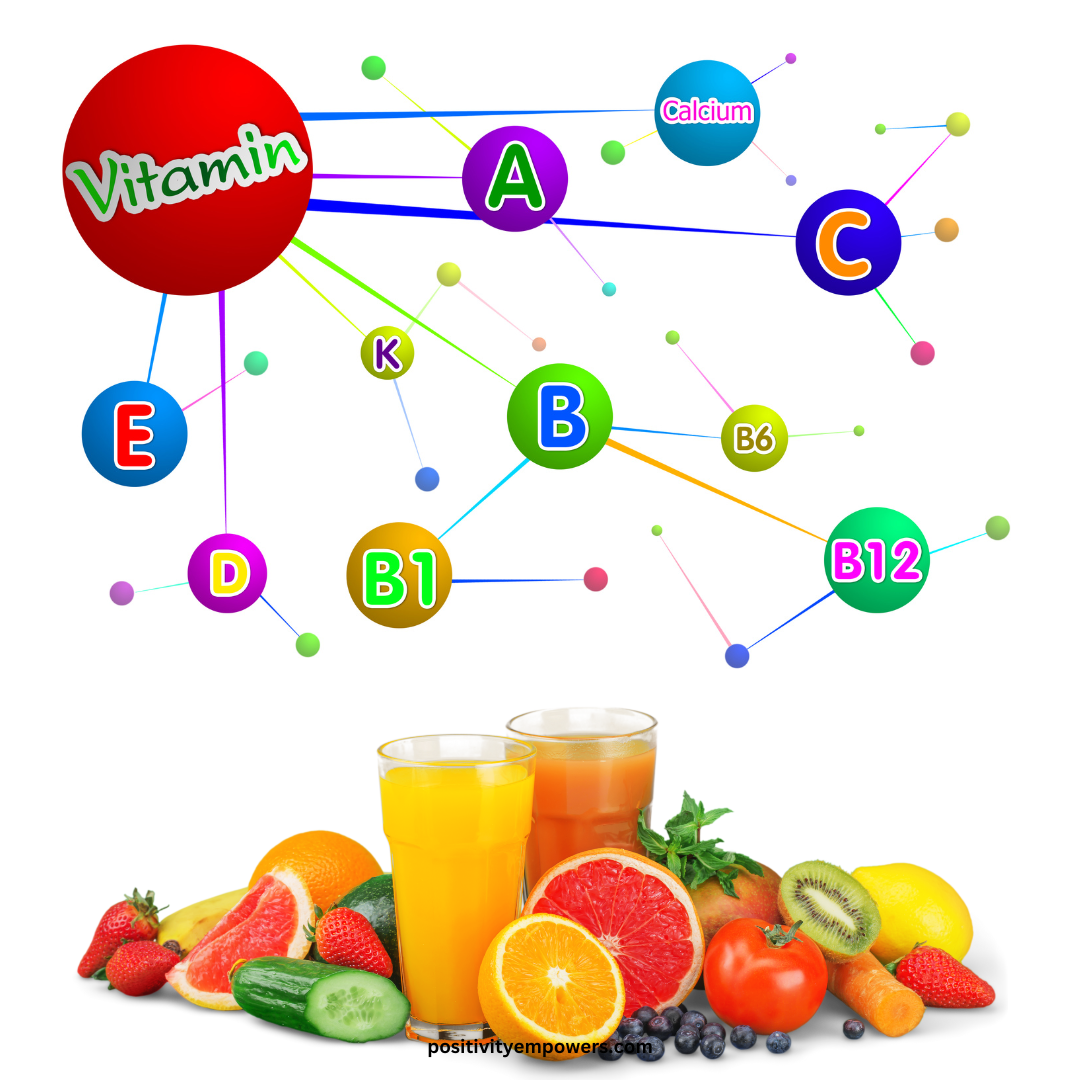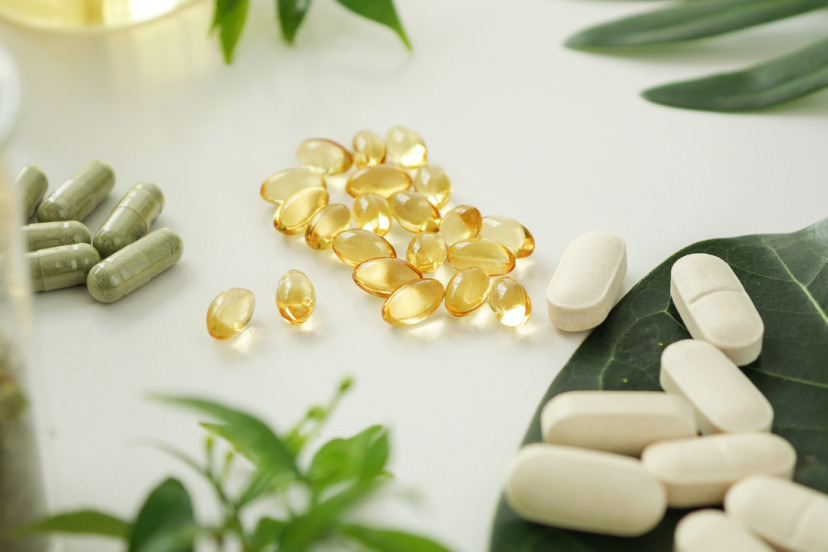Top 12 Vitamins for Metabolism – Boost Energy and Burn Fat Naturally
Vitamins for metabolism are essential when it comes to maintaining a healthy weight and boosting your energy levels. The speed at which your body processes and uses food for energy can greatly impact how you feel throughout the day.
To make sure your metabolism is working optimally, certain vitamins are essential. You might be surprised to learn there are more than 10 vitamins that directly or indirectly support metabolic functions! In this article, we’ll explore the top 10 best vitamins for metabolism, explain how they work, and highlight their benefits. Plus, stay tuned because we’ll also talk about how certain combinations can enhance your metabolism even more.
Top 12 Vitamins For Metabolism
To keep your metabolism running smoothly, specific vitamins are key. These vitamins support the breakdown of carbohydrates, fats, and proteins to fuel your body’s cells. Let’s take a closer look at each one.

1. Vitamin B1 (Thiamine)
Thiamine, or vitamin B1, is often the unsung hero when it comes to energy production. This vitamin plays a crucial role in turning the food you eat into usable energy. Without B1, your body struggles to break down carbohydrates, which are your main energy source. If you find yourself feeling sluggish, lacking energy, or unable to concentrate, it might be worth looking at your B1 intake. Foods like whole grains, pork, and seeds are great sources of thiamine.
2. Vitamin B2 (Riboflavin)
Riboflavin, or vitamin B2, helps with the metabolism of fats. It aids in converting fats into energy that your body can use, making it a key player if you’re looking to maintain or lose weight. B2 also works as an antioxidant, protecting cells from oxidative damage caused by metabolic processes. You can find riboflavin in dairy products, almonds, and leafy greens like spinach.
3. Vitamin B3 (Niacin)
Niacin is another B vitamin that helps boost metabolism, particularly when it comes to carbohydrates. It helps your body break down carbs into glucose, which your cells use for energy. Niacin also supports healthy cholesterol levels, so it’s not just about energy but overall cardiovascular health. You’ll find niacin in foods like chicken, tuna, and peanuts.
4. Vitamin B5 (Pantothenic Acid)
Pantothenic acid, or B5, is essential for breaking down fats and converting them into energy. It also plays a role in synthesizing coenzyme A, which is vital for metabolizing carbohydrates and proteins as well. Foods rich in B5 include avocados, eggs, and sweet potatoes, making it easy to get this metabolism-boosting vitamin from a balanced diet.
5. Vitamin B6 (Pyridoxine)
Vitamin B6 is responsible for aiding in protein metabolism and the conversion of glycogen to glucose, which your muscles use for energy. It’s also involved in brain function and mood regulation, so it’s essential for both your metabolism and overall wellbeing. Foods like bananas, potatoes, and chickpeas are rich in B6, making them a good choice for maintaining energy levels.
6. Vitamin B7 (Biotin)
Biotin is famous for its benefits to hair and skin, but did you know it’s also a metabolism booster? Biotin helps your body convert fats, proteins, and carbohydrates into energy. It’s an important vitamin for maintaining a steady energy supply, particularly during physical activities. Biotin-rich foods include eggs, almonds, and salmon.
7. Vitamin B12 (Cobalamin)
Vitamin B12 is vital for energy production as it helps in the formation of red blood cells and supports the function of your central nervous system. Without enough B12, you may experience fatigue or weakness, so keeping your levels up is essential for a high-functioning metabolism. B12 is mainly found in animal products like meat, dairy, and eggs, making it a common deficiency in vegetarians and vegans.
8. Vitamin C (Ascorbic Acid)
Vitamin C is best known for supporting the immune system, but it also helps with fat oxidation during exercise. This vitamin plays a key role in synthesizing carnitine, a molecule that transports fatty acids into your cells to be burned for energy. Boost your vitamin C intake by eating citrus fruits, strawberries, and bell peppers.
9. Vitamin D
While often associated with bone health, vitamin D is also linked to weight management and metabolism. Some studies suggest that people with lower vitamin D levels may have slower metabolisms, making it harder to maintain or lose weight. Sunlight exposure and foods like salmon, eggs, and fortified milk are great sources of vitamin D.
10. Vitamin E
Vitamin E is another antioxidant that supports muscle function, which in turn aids in maintaining a healthy metabolism. By protecting your muscles from oxidative stress, vitamin E ensures that your body stays efficient at burning calories even during exercise. You can find this vitamin in nuts, seeds, and green leafy vegetables.
11. Folic Acid (Vitamin B9)
Folic acid plays a vital role in DNA synthesis and cell division, which is important for tissue growth and energy production. It’s especially important for women of childbearing age, but everyone can benefit from its role in metabolism. Folic acid is found in leafy greens, legumes, and fortified cereals.
12. Magnesium
Magnesium is an essential mineral that supports hundreds of biochemical reactions in your body, many of which involve energy production. It helps convert food into energy and plays a role in muscle function, which is essential for staying active and keeping your metabolism high. Foods like nuts, seeds, and dark chocolate are excellent sources of magnesium.
13. HYDROGEN WATER – The Best for Last
Although hydrogen water is not considered a vitamin, it does contain vitamins for metabolism in it. Naturally aiding in digestion and overall better health, and therefore very much worth mentioning.
The benefits of hydrogen water are as diverse as they are compelling. It supports cellular health, reduces inflammation, and boosts energy levels by enhancing mitochondrial function. It can improve digestion, regulate blood sugar, and even protect the liver from oxidative damage. Hydrogen water is also a favorite among fitness enthusiasts for reducing muscle soreness and speeding up recovery. Beyond the physical, it may boost brain health by lowering oxidative stress in the brain, improving memory and cognitive function. Other perks include better skin health, allergy relief, cardiovascular support, and enhanced overall metabolism. With so many benefits packed into each sip, it’s no wonder hydrogen water is becoming the go-to choice for health-conscious individuals worldwide!
Final Thoughts
If you’re looking to rev up your metabolism, focusing on your vitamin intake is a great place to start. Each of the vitamins for metabolism mentioned above, including the hydrogen water, plays a unique role in supporting energy production, fat burning, or muscle function—all critical components of a healthy metabolism. Remember, consistency is key, and getting these vitamins through a well-balanced diet is the most effective way to keep your metabolism humming along. Whether you’re aiming to boost energy, lose weight, or simply feel more vibrant, these vitamins for metabolism will help you get there.
I know vitamins work! I have seen it fist hand when treating my husband who had stage 4 cancer, and who is still alive today, and cancer free for over 20 years now. Trust me, they work!! You just need to be consistent and know which ones to take.
I’m not a doctor of course, so this is just my opinion, but it’s based on my own personal experience with them. What I saw with my own eyes and what I myself experienced when taking them. It is not an overnight thing, but once they start working you will definitely feel a difference. It doesn’t matter if your just using vitamins for metabolism, you can use other vitamin types for other aliments too. Vitamin combinations are also excellent and sometimes even better, so stay tuned for that!
FAQs
- Which vitamin is the most important for metabolism?
Vitamin B12 is often considered one of the most critical for metabolism due to its role in energy production and red blood cell formation. - Do I need all B vitamins for a healthy metabolism?
Yes, each B vitamin plays a role in different metabolic processes, so it’s important to maintain balanced levels of all B vitamins. - Can vitamins alone improve my metabolism?
Vitamins support metabolic function, but they work best alongside a healthy diet, regular exercise, and proper hydration. - How long does it take to see results from vitamins for metabolism?
It can vary, but typically you’ll start feeling more energetic within a few weeks if you’re consistent with your intake of these vitamins.




